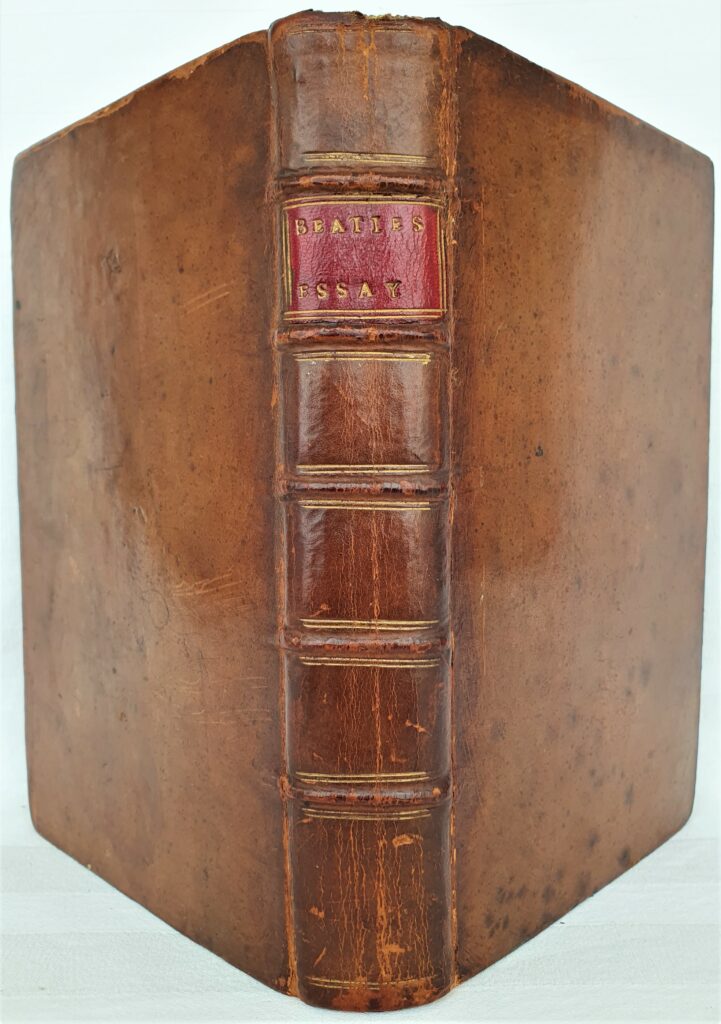First edition, including a powerful rebuttal of David Hume’s racism, newly relevant in the light of recent events in Edinburgh. ‘In 1770 Beattie first published the work for which he is best known, An Essay on Truth, an abrasive attack on “modern scepticism” in general, and on David Hume in particular. The Essay was a great success, earning its author an honorary degree from Oxford and an audience with George III. Samuel Johnson declared in 1772 that “We all love Beattie”. Hume, on the other hand, described the Essay as “a horrible large lie in octavo”, and famously dismissed its author as that ‘bigotted silly Fellow’ (James Harris).
In fact (at least on racial matters) if either of them was a bigot it was Hume, whose notorious footnote to his essay ‘Of National Characters’, asserting the natural inferiority of non-white people, has provoked much stormy argument again, following the toppling of Edward Colston’s statue in Bristol. Hume’s defenders say this is ‘just one footnote’, and that it anyway expresses a view typical of the time. But Beattie’s eloquent point-by-point rebuttal here in the Essay (pp. 479 ff) shows that Hume’s views on race were publicly opposed even in 1770. Moreover, Hume revised the same footnote in subsequent editions of his Essays Moral, Political and Literary, up to and including their appearance in the definitive edition of his works published posthumously in 1777, on which he had spent his last years working. John Immerwahr has shown in detail how Hume’s revisions to the footnote were clearly made in reaction to Beattie’s objections, and that if anything they make the footnote even worse. ‘The fact that Hume revised the note further proves that his racism was deliberate rather than casual. The revision proves that Hume did seriously consider objections to his racist position. His response, however, was to sharpen his attacks on blacks further. His racism should thus be read as something he was willing to defend, rather than as an offhand remark’ (‘Hume’s Revised Racism’, JHI, vol. 53, no 3, 1992, pp. 481-486).

